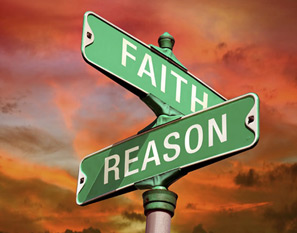Blind Faith in Self Reflection
Have faith or so the saying goes. Isn’t this just Blind Faith? What is faith? Wikipedia defines faith as:
Faith is confidence, obedience, or trust in a person or thing, or a deity, or in the doctrines, or teachings of a religion. It may also be belief that is not based on proof. In religion, faith often involves accepting claims about the character of a deity, nature, or the universe. While some have argued that faith is opposed to reason, proponents of faith argue that the proper domain of faith concerns questions which cannot be settled by evidence. For example, faith can be applied to predictions of the future, which (by definition) has not yet occurred.
The word faith is often used as a substitute for hope, trust or belief.
There’s no proof so have Blind Faith. Faith is believing in what is true. Faith has two elements: 1) being convinced of the truth, being certain of reality, having evidence of unseen things, and 2) believing, hoping in, embracing, seizing the truth of something unseen.
Yep, just another definition. Another description of something that’s indescribable. As such does Blind Faith really exist? The concept of faith is a broad one, in its most general description “faith” means much the same as “trust”. “Trust” me, we’ll get there. “Trust” me, I’ll take care of you, “Trust” me, you’ll get you money back. Or even “trust” in me, and you will be saved. However, with the notion of religious faith or, rather, the kind of faith exemplified in religious faith. The philosophical accounts are almost exclusively about theistic religious faith. Blind faith in God, and they generally, although not exclusively, deal with faith as understood within the Christian branch of the Abrahamic traditions. Blind faith in something we have never experienced. Expect in church. Not one of us live today ever walked with Christ the man. Well maybe one, if you have Blind faith. But, although the theistic religious context settles what kind of faith is of interest, the question arises whether faith of that same general kind also belongs to other, non-theistic, religious contexts, or to contexts not usually thought of as religious at all. It may perhaps be apt to speak of the faith of, (for example), a humanist, or even an atheist, using the same general sense of ‘faith’ as applies to the theist case.


Leave A Comment
You must be logged in to post a comment.